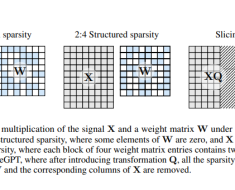By Ariana Hurtado, Editor and Director of Special Reports
HOUSTON — Cosmo Energy Holdings formed a partnership with software provider Cognite last October to adopt its Cognite Data Fusion as the foundational data platform to secure profitability in Cosmo Energy’s downstream and petrochemical business.
Cognite Data Fusion is an Industrial DataOps platform that assists with the company’s digital optimization of existing business operations and processes. Cosmo Energy said it also contributes to the overall enhancement of company revenue by improving business efficiency through IT/DX adoption, elevating operations based on data-driven insights.
In addition, Cosmo Energy will leverage Cognite AI, the generative artificial intelligence (Gen AI) accelerator for industrial data and value realization, to streamline and expedite employee tasks by retrieving necessary data in conversation format and pinpointing relevant data.
Gen AI offshore
Dr. John Markus Lervik, Cognite’s chief strategy and development officer and co-founder, recently shared his insights with Offshore about generative AI and digitalization challenges being faced offshore.
“Generative AI is a powerful tool that enhances safety, ensures environmental compliance and provides market insights resulting in optimized operations and informed decision-making,” Lervik said. “Additionally, its ability to process vast amounts of data and generate actionable insights and contextualized information is crucial to the industry’s resilience and adaptability amid market volatility.”
Gen AI isn’t a new concept for use in offshore applications. For instance, Unique Group’s new Aquila Subsea platform is a Gen AI chatbot that was specifically designed for the subsea survey sector and offers technical assistance by providing instant and accurate responses. In another example, Amazon Web Services said, in the early stages, Gen AI-based systems will serve as chat or natural-language interfaces that complement existing machine learning and AI-based systems, and the company is currently trialing Gen AI across the full value chain. Thirdly, SparkCognition and Shell formed a technology collaboration last year that aims to accelerate the pace of imaging and exploration of subsurface structures using Gen AI technology.
“In terms of navigating safety risks, Cognite uses Gen AI to analyze extensive datasets, identifying patterns and correlations that enable the prediction of potential risks and suggest proactive maintenance to enhance safety,” he said. “Meeting stringent environmental regulations is a key priority for the offshore oil and gas industry.”
Gen AI can be used to monitor and optimize operations to ensure compliance while predicting potential environmental impacts and optimizing resource utilization.
In a case study with Aker BP, Cognite was able to display how Gen AI can improve data management practices. Aker BP was facing production losses while monitoring for oil-in-water levels, as safely discharging water to the sea requires slowing down production while troubleshooting and, therefore, becomes a time-consuming process, Lervik explained. With the addition of Cognite’s smart monitoring system that visualized all relevant data for troubleshooting water contamination, Aker BP was able to obtain near-real-time data and enable calculations with sensor values and simulator outputs. This provided engineers with information they otherwise would not have had, reduced the time needed to identify any issues and reduced environmental incidents.
He added, “Gen AI is helping navigate a volatile market by analyzing trends and processing data in real time, allowing companies to make informed decisions regarding production levels and resource allocation to adapt to changing market conditions.”
Digital twins
Cosmo has plans to adopt digital twin technology to enable remote monitoring of their plant operations, with the aim to have more efficient and flexible operations.
Offshore asked Lervik about the challenges and solutions associated with digital twin technology for offshore projects.
“A significant challenge associated with digital twin technology in offshore projects is integrating disparate data sources while maintaining data quality seamlessly,” he said. “Many oil and gas companies remain uncertain about how much control they have over their data, including its origin, reliability and methods for continuous enrichment.”
To assist with this challenge, Cognite has constructed knowledge graphs that use datasets from diverse sources.
“The harmonization of schemas, identities and contextual information contributes to the coherence of a comprehensive data repository,” he explained. “Cognite Data Fusion’s knowledge graph, powered by AI, serves as a unified platform for contextualized images, time series, reports, diagrams, work orders and more. The integration of a knowledge graph with large language models (LLMs) further enhances the outcome, resulting in data that is not only trusted but also accessible and thoroughly contextualized, leading to actionable, real-time insights.”
Cognite’s partnership with Cosmo is currently focused on downstream and petrochemicals. However, in the future, Lervik says his company plans the continued implementation and integration of Cognite Data Fusion and Cognite AI across various aspects of Cosmo’s operations.

![Large language models in bioinformatics: applications and perspectives. (arXiv:2401.04155v1 [q-bio.QM]) Large language models in bioinformatics: applications and perspectives. (arXiv:2401.04155v1 [q-bio.QM])](https://aigumbo.com/wp-content/uploads/2023/12/arxiv-logo-fb-235x190.png)


